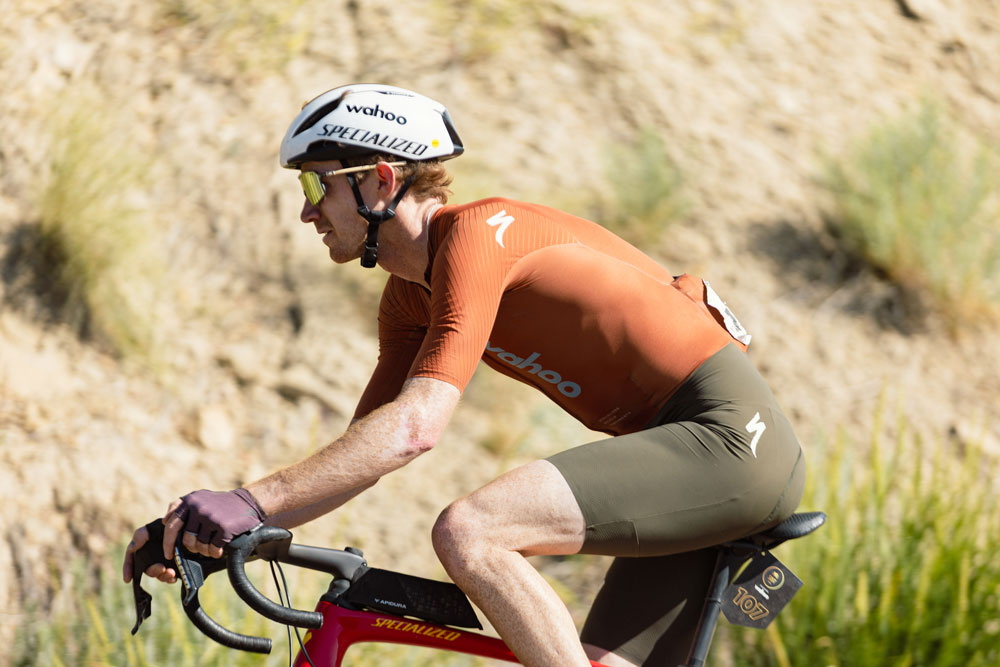How the gravel champion discovered that cross training can be more than just winter survival
Ian Boswell spent seven years racing at cycling’s highest level, including the 2018 Tour de France. Now the 2021 Unbound Gravel champion is adding a new dimension to his training: running. And surprisingly, for someone whose life has been “defined by two wheels” since age seven, he’s genuinely excited about it.
“I’ve really started to enjoy running and see myself signing up for more events in the years to come,” Boswell says from his Vermont home, where he now balances gravel racing with hosting the “Breakfast with Boz” podcast for Wahoo.
From Necessity to Discovery
Boswell’s running journey began pragmatically. Vermont winters aren’t exactly conducive to outdoor cycling, and maintaining fitness through the cold months has always been a challenge for cyclists in northern climates. Enter the Wahoo KICKR RUN.
“It’s been a key product in allowing me to run through the winter in a controlled and safe environment,” he explains. What started as a practical solution to weather-related training limitations has evolved into something more meaningful.
This isn’t Boswell’s first experience with running. He competed in cross country during high school in Bend, Oregon, before cycling took over. But returning to running as an established athlete hits differently than those teenage years of multi sport participation.
The Mental Reset
After retiring from professional road racing in 2019 following a crash at Tirreno Adriatico, Boswell found unexpected freedom in gravel racing. Now, running is providing another layer of that liberation.
“In 2024 I got sucked into thinking I needed to ride more as that is what I saw on social media, everyone training the house down,” Boswell admits. The constant pressure to log more miles, familiar to any endurance athlete with an Instagram account, had crept back into his routine.
His solution? A philosophical shift that would have seemed impossible during his Team Sky days: “This year I am returning to doing what I can, what feels good and what I enjoy.”
Performance Without the Pressure
This approach doesn’t mean Boswell is taking it easy. He placed 8th at his fifth Unbound 200 and is targeting a strong performance at Vermont Overland. The difference is in how he’s approaching the preparation.
Running offers a unique complement to his cycling. While the aerobic benefits are obvious, there’s something about the simplicity of running that appeals to someone who spent years analyzing power data and optimizing every aspect of performance.
“The pandemic gave me this year without any specific race objective. That was the first time I’d experienced that since I was like 12 years old,” he reflects. “A lot shifted in me internally. I realized that riding bikes is something incredibly valuable in my life, important and fun.”
That same realization is now extending to running.
Building a Sustainable Future
At 34, Boswell represents a growing number of elite endurance athletes who are redefining what long-term success looks like. His work at Wahoo, both as an athlete and podcast host, keeps him connected to the sport’s cutting edge while allowing space for personal exploration.
The integration of running into his routine isn’t just about maintaining fitness through winter or adding variety. It’s part of a larger evolution in how he approaches being an athlete.
“Do what you can. Do what feels good. Do what you enjoy,” has become his training philosophy, a stark contrast to the rigid structure of World Tour racing where coffee stops during training rides were considered unnecessary distractions.
The Cross Training Revelation
For cyclists considering adding running to their routine, Boswell’s experience offers valuable perspective. The controlled environment of indoor running eliminates weather variables while reducing impact compared to road running. More importantly, it provides mental variety that can reinvigorate training.
“I still love riding hard,” he emphasizes. Running hasn’t replaced his passion for cycling; it’s enhanced it by providing balance and preventing the burnout that can come from single sport focus.
As Boswell prepares for 2025, his approach embodies a mature athlete’s wisdom: performance and enjoyment aren’t mutually exclusive. Sometimes the best training adaptation is simply allowing yourself to explore something new.
For someone who achieved his childhood dream of racing the Tour de France, finding joy in something as simple as running might be his most important victory yet.



